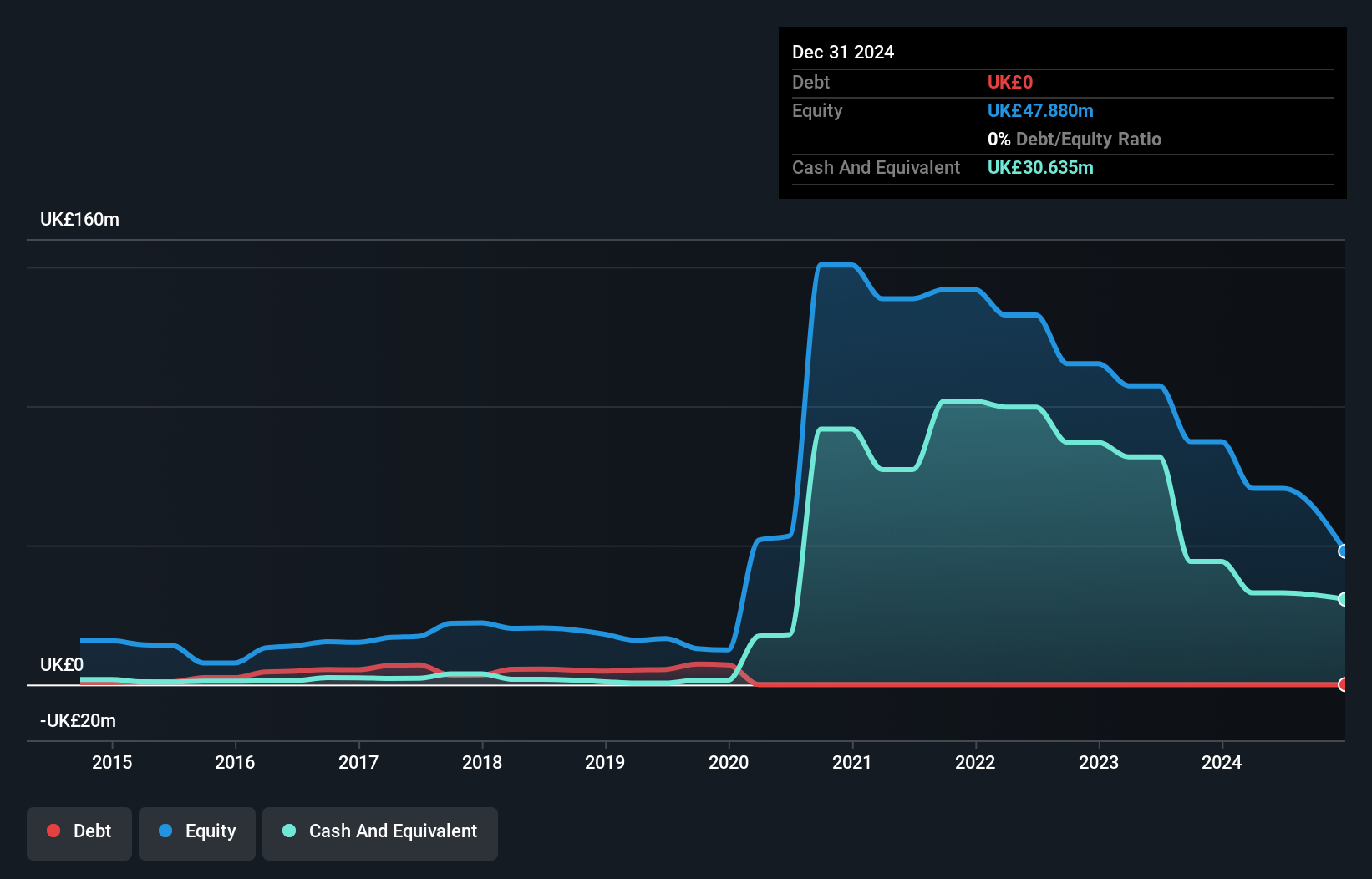We're Not Very Worried About Novacyt's (EPA:ALNOV) Cash Burn Rate
Just because a business does not make any money, does not mean that the stock will go down. For example, biotech and mining exploration companies often lose money for years before finding success with a new treatment or mineral discovery. But while the successes are well known, investors should not ignore the very many unprofitable companies that simply burn through all their cash and collapse.
Given this risk, we thought we'd take a look at whether Novacyt (EPA:ALNOV) shareholders should be worried about its cash burn. For the purposes of this article, cash burn is the annual rate at which an unprofitable company spends cash to fund its growth; its negative free cash flow. Let's start with an examination of the business' cash, relative to its cash burn.
Does Novacyt Have A Long Cash Runway?
A company's cash runway is calculated by dividing its cash hoard by its cash burn. In December 2024, Novacyt had UK£31m in cash, and was debt-free. Importantly, its cash burn was UK£12m over the trailing twelve months. So it had a cash runway of about 2.6 years from December 2024. Arguably, that's a prudent and sensible length of runway to have. Depicted below, you can see how its cash holdings have changed over time.

Check out our latest analysis for Novacyt
How Well Is Novacyt Growing?
Novacyt managed to reduce its cash burn by 55% over the last twelve months, which suggests it's on the right flight path. This reduction was no doubt supported by its strong revenue growth of 85% in the same period. Considering these factors, we're fairly impressed by its growth trajectory. In reality, this article only makes a short study of the company's growth data. This graph of historic revenue growth shows how Novacyt is building its business over time.
How Easily Can Novacyt Raise Cash?
While Novacyt seems to be in a decent position, we reckon it is still worth thinking about how easily it could raise more cash, if that proved desirable. Generally speaking, a listed business can raise new cash through issuing shares or taking on debt. One of the main advantages held by publicly listed companies is that they can sell shares to investors to raise cash and fund growth. By looking at a company's cash burn relative to its market capitalisation, we gain insight on how much shareholders would be diluted if the company needed to raise enough cash to cover another year's cash burn.
Since it has a market capitalisation of UK£32m, Novacyt's UK£12m in cash burn equates to about 37% of its market value. That's fairly notable cash burn, so if the company had to sell shares to cover the cost of another year's operations, shareholders would suffer some costly dilution.
Is Novacyt's Cash Burn A Worry?
On this analysis of Novacyt's cash burn, we think its revenue growth was reassuring, while its cash burn relative to its market cap has us a bit worried. Based on the factors mentioned in this article, we think its cash burn situation warrants some attention from shareholders, but we don't think they should be worried. On another note, we conducted an in-depth investigation of the company, and identified 3 warning signs for Novacyt (2 can't be ignored!) that you should be aware of before investing here.
Of course, you might find a fantastic investment by looking elsewhere. So take a peek at this free list of companies with significant insider holdings, and this list of stocks growth stocks (according to analyst forecasts)
Valuation is complex, but we're here to simplify it.
Discover if Novacyt might be undervalued or overvalued with our detailed analysis, featuring fair value estimates, potential risks, dividends, insider trades, and its financial condition.
Access Free AnalysisHave feedback on this article? Concerned about the content? Get in touch with us directly. Alternatively, email editorial-team (at) simplywallst.com.
This article by Simply Wall St is general in nature. We provide commentary based on historical data and analyst forecasts only using an unbiased methodology and our articles are not intended to be financial advice. It does not constitute a recommendation to buy or sell any stock, and does not take account of your objectives, or your financial situation. We aim to bring you long-term focused analysis driven by fundamental data. Note that our analysis may not factor in the latest price-sensitive company announcements or qualitative material. Simply Wall St has no position in any stocks mentioned.
About ENXTPA:ALNOV
Novacyt
Develops, manufactures, and commercializes a range of molecular assays and instrumentation to deliver workflows and services for human health, animal health, and environmental sectors.
Flawless balance sheet with low risk.
Market Insights
Community Narratives




